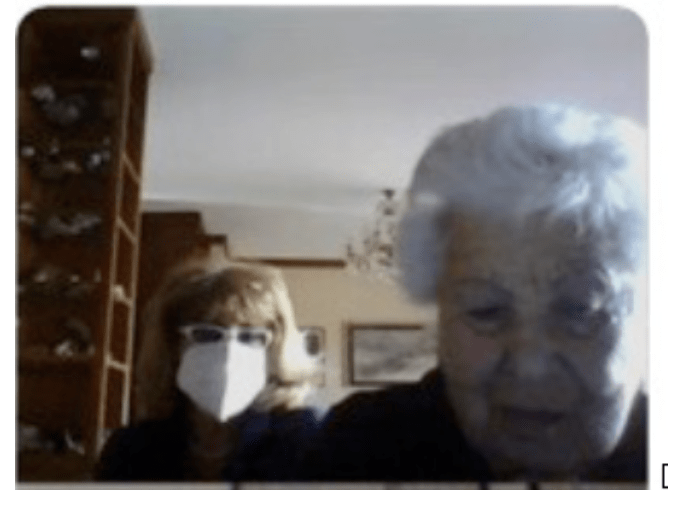Ed – Back at the beginning of the pandemic we had a fantastic contribution from our friend and colleague Roberto Cosentini on the Bergamo experience of dealing with this terrible disease. It turned out to be one of our most downloaded episodes because it helped so many of us to prepare our own departments and health systems before it hit here. It was a really powerful podcast that I’m sure made a difference to patient care. If you want to listen to that podcast again click on the link below. It’s really interesting to reflect on what we knew then, compared to what we know now.
This week Roberto is back to reflect on how he and his team managed their mental safety at this difficult time. There are some really helpful ideas here that we would like you to think about personally and to share with your colleagues.
Roberto Cosentini
The SARS-CoV-2 epidemic surge in Bergamo was an extraordinary challenge for our health system. In our hospital in Bergamo, from Feb 23 to Apr 30 we saw 2471 acute COVID19 patients. 1.407 patients were admitted, and 49 died in the Emergency Room.
More than 200 patients were treated with non-invasive ventilation. During the peak activity days, we saw up to 170 patients in 24h with 35 critical cases (red codes, see graph).

Unsurprisingly people have recognised that this was a challenging time for myself and colleagues and I’ve been asked about my mental safety during this COVID19 challenge.
In this blog post I’ve outlined what we did, together with some personal examples.
What drove us to achieve the Full Power of EM?
- Categorical Imperative (each of us gave 200%), the primordial basis of our work. Kant describes the categorical imperative as an objective, rationally necessary and unconditional principle that we must always follow despite any natural desires or inclinations we may have to the contrary. During Covid-19 this was seen amongst our staff.
- Adrenaline. We were driven by the intensity and enormity of the job. This drove us to be active and to operate as fast and as best we could. It felt that at times we had such high levels, that not infrequently we forgot to drink or eat (don’t do this).
- Gearing. Many past issues that slowed us down in the ED, or which prevented us from being inefficient reduced. During the pandemic, the ED has been the hospital defining gear for the hospital; no inertia, no resistance, no push back. We became the gear that governed patient flow through the hospital
How can we Fuel and Recharge?
- 1 stick to your rituals and routines
- 2 talk to friends and family
- 3 back to things you love & make you feel better
- 4 share
1 Rituals and routines
- Rituals and routines are important. Never gave up on morning rituals. For me this meant a healthy breakfast, 7 min-exercise, thinking of 2 things to be grateful of, including my incredibly creative staff; drawing a sketch for my wife summarising the previous day: work and love; box breathing before work (square breathing exercises)

2 Family & Friends
- Keep in touch with your partner. I spent nights spent with my wife (or always phoned her if in the hospital)
- Think about elderly relatives. I spoke daily talk to my elderly mom (96).
- Look after the younger members of the family. We had many late night talks with our sons so that we all understood what was happening (sharing the same mental model of work & love)
- Keep in touch with friends. I regularly talk to my few close friends even if I cannot see them.


3. Back to favourites
- in the first days I did an automatic shift from EM podcast to music podcast (the history of the Beatles) that completely absorbed my mind leading to a daily full reset & relax. Distraction is a great tool.
- Reading stories, and again not just about medicine but reading something that is an escape. I read the western response to oriental meditation (via Kurt Vonnegut)

4. Sharing
- I realised that I had learned a lot and had much to share. I did this locally and internationally as we were happy to share to our wider EM community. Sharing also brings purpose to the experiences we have. If others can learn from what we have done then it makes what we have experienced worthwhile.

When danger threatens, and this was and is dangerous we tend to go back and rely on two fundamentals pillars.
- 1. Gratefulness to have the instruments to appreciate life (before medicine we studied classics, music, and we live in a country where history comes along with joy of life and love)
- 2. The privilege to be doctors/nurses and to help our patients and colleagues all over the world


Bergamo, June 10th, 2020
Roberto
References
- Kant I. Metaphysical Foundations of Natural Science, 1786
- Lauria MJ, Gallo IA, Rush S, Brooks J, Spiegel R, Weingart SD. Psychological Skills to Improve Emergency Care Providers’ Performance Under Stress. Ann Emerg Med. 2017;70(6):884-890. doi:10.1016/j.annemergmed.2017.03.018
- Vonnegut K. If This Isn’t Nice, What Is?: Advice to the Young, 2013
- Seneca. Letters from a Stoic, 62-65 AD
- Podcast. https://www.stemlynsblog.org/covid-19-podcast-from-italy-with-roberto-cosentini-st-emlyns/

